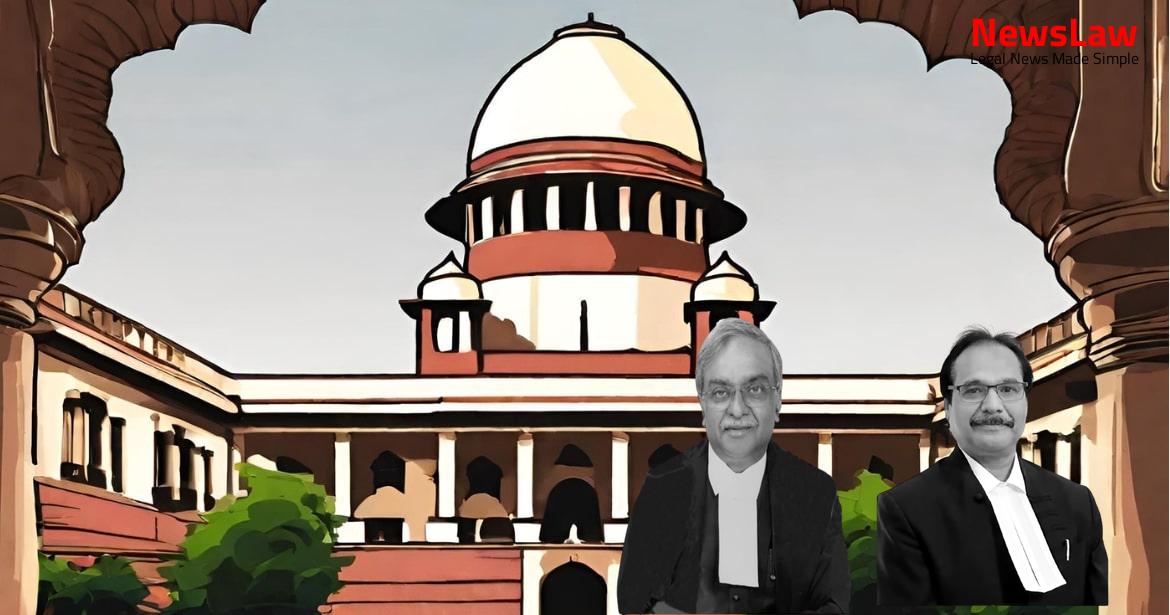The Supreme Court of India recently issued a landmark judgement regarding the legal implications for directors in company affairs. The case sheds light on the responsibilities and potential liabilities of individuals in positions of authority within a company, particularly in cases of offences committed by the company. This judgement has far-reaching implications for corporate governance and the accountability of directors in ensuring compliance with the law.
Facts
- The complaint filed under Section 200 of the Code of Criminal Procedure alleged violation of Section 29A of the National Housing Bank Act, 1987.
- The first accused is a company with the second accused as the Managing Director and the other five accused as Directors.
- The Magistrate took cognizance of the offence under Section 29A (i) read with Section 50 and punishable under Section 49 (2A) of the 1987 Act.
- There was no reason to quash the complaint based on the parties’ status before the Trial Court.
- High Court quashed the complaint entirely based on non-compliance with Section 50(1) of the 1987 Act
- High Court compared Section 50(1) requirements to Section 141 of the NI Act, stating non-compliance by the complainant
- Section 49(2A) of the 1987 Act provides for a minimum sentence of one year, extendable up to five years
Also Read: Land Allotment Transparency: Setting Precedent for Equitable Distribution
Arguments
- Learned counsel for the appellant presented arguments based on the averments in the complaint and the provisions of the 1987 Act.
- It was contended that a violation of Section 29A (i) of the 1987 Act was evident from a plain reading of the complaint.
- The complaint pointed out that the second accused was described as the Managing Director of the first respondent, making him responsible for the company’s business conduct.
- The learned counsel for the accused argued that the necessary averments under Section 50 of the 1987 Act were not included in the complaint.
- Section 50 of the 1987 Act discusses the liability of individuals in positions of authority within a company when an offence is committed.
- It states that persons in charge and responsible for the company’s business at the time of the offence, along with the company itself, are deemed guilty of the offence.
- However, if the person can prove the offence was committed without their knowledge or that they took all due diligence to prevent it, they may not be held liable.
- Additionally, if an offence is committed with the consent, connivance, or neglect of directors, managers, or officers of the company, they too are deemed guilty and can be punished.
- The explanation under this section clarifies that ‘company’ includes bodies corporate, firms, or other associations of individuals, while ‘director’ in a firm refers to a partner.
Also Read: Exclusion of VAT from Taxable Turnover Upheld by Supreme Court
Analysis
- The court emphasized the necessity of specifically averring in a complaint under Section 141 that the accused person was in charge of and responsible for the conduct of the company’s business at the time of the offense.
- Directors or individuals holding managerial positions in the company are deemed liable under Section 141 if they were in charge of the company’s affairs at the time of the offense.
- Merely being a director of a company is not enough to establish liability under Section 141; there must be a clear connection to the conduct of the company’s business.
- The complainant must include essential details such as the company’s registration status and office address to satisfy the requirements of Section 141.
- In the absence of specific averments as required by Section 50, vicarious liability of directors is not attracted.
- The managing director or joint managing director is typically deemed to be in charge of and responsible for the company’s business.
- Signatories of dishonored cheques are directly responsible for the act and fall under the purview of Section 141.
- The Trial Court’s jurisdiction to take cognizance of an offense against directors depends on the presence of the required averments in the complaint.
- The Memorandum and Articles of Association of the company should be provided to establish the role and responsibilities of the accused individuals.
- The appellant challenged the judgment and order passed by the High Court in a criminal revision petition
- The respondent, a director of a company, issued a cheque which was dishonored
- The respondent claimed that she was not involved in the day-to-day affairs of the company
- The Trial Court convicted the respondent under Section 138 of the NI Act
- The High Court set aside the conviction on the ground that the respondent was not involved in the affairs of the company
- The matter arose from a reference made by a two-Judge Bench to determine specific questions by a larger Bench.
- One of the questions was whether specific averments are necessary in a complaint under Section 141 of the Negotiable Instruments Act, 1881.
- The larger Bench discussed whether it is sufficient if the substance of the allegation as a whole fulfills the requirements of the said section without specific mention in the complaint.
- The conclusion in paragraph 19 emphasized the discussion points regarding the responsibility of a director in charge of a company’s business conduct and their potential guilt in an offense.
- The matter raised the issue of whether a signatory of a cheque or managing directors could be proceeded against even without specific averments in the complaint.
- No reasons provided to quash the complaint against the first accused.
Also Read: Judgment on Interim Stay of Bail Orders: The Case of Liberty vs. Judicial Discretion
Decision
- The impugned order is modified to direct the complaint proceeding according to the law against the first and second accused.
- The Appeals are partly allowed based on the above terms.
- C.C. No 4331 of 2010 filed in the Court of the Judicial Magistrate, Egmore at Chennai is quashed against the third to seventh accused mentioned therein.
Case Title: NATIONAL HOUSING BANK Vs. BHERUDAN DUGAR HOUSING FINANCE LTD. AND ORS. ETC. (2024 INSC 566)
Case Number: Crl.A. No.-003176-003177 – 2024



